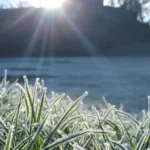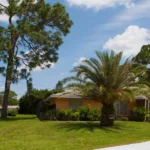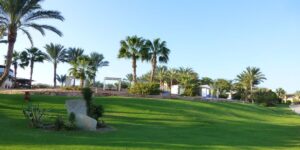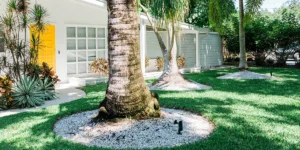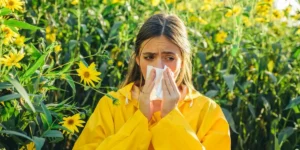 Itchy eyes, sneezing, and congestion can quickly turn a day in the yard into a miserable venture. Gardening when you have allergies can be a real challenge, particularly here in the sunny state of Florida. Fortunately, however, there may be some solutions! By following a few simple steps, you can enjoy time in your garden without worrying about an uncomfortable reaction. Here are our tips for gardening in Florida when you have allergies:
Itchy eyes, sneezing, and congestion can quickly turn a day in the yard into a miserable venture. Gardening when you have allergies can be a real challenge, particularly here in the sunny state of Florida. Fortunately, however, there may be some solutions! By following a few simple steps, you can enjoy time in your garden without worrying about an uncomfortable reaction. Here are our tips for gardening in Florida when you have allergies:
Avoid Known Allergens
It goes without saying that you should avoid anything that you know you are allergic to. If possible, remove any allergy-inducing plants from your property, or consider hiring help for those specific areas of the garden. That said, many of us don’t know what exactly we are allergic to, which is where the other tips can come in handy.
Plan Ahead With a Pollen Map
Pollen maps monitor the daily pollen count in a given area. A pollen count is the number of grains of pollen in a cubic meter of air, and you can use this number to determine which days are best for gardening. On dry and sunny days with a high pollen count, it may be best to stay indoors and plan your yard work for another time.
Wear Protective Gear
Gloves aren’t just there to protect you from slivers or thorns; they can also help shield your skin from coming into contact with allergens. Consider wearing long sleeves, long pants, gloves, a painter’s mask, or some protective glasses. While that may seem like overkill – especially on a hot day – it can protect you from anything that would trigger a reaction. Also, avoid touching your face or eyes while gardening.
Pick Allergy-Friendly Plants
Some plants produce more pollen than others. With a little bit of planning, you can fill your garden with plants that are less likely to trigger an allergic reaction. To find allergy-friendly plants, you can ask your local experts or follow these tips:
- Pick female dioecious plants: With dioecious plants, the sex is separated. That means female dioecious plants do not come with pollen-producing male flowers, so they are less likely to aggravate your allergies.
- Pick perfect-flowered plants: Perfect-flowered plants have both male and female components in the same flower. Because the pollen does not need to travel in the wind to reach the female part of the plant, the pollination is fairly contained.
- Look at the OPALS rating: The Ogren Plant Allergy Scale (OPALS) is an allergy rating system that measures a plant’s potential to cause allergic reactions. This scale considers everything from pollen allergies to contact allergies and can be a good reference point for individuals looking for allergy-safe plants.
Avoid Mold Spores
You may not think that you have mold in the garden, but mold spores can hide anywhere – particularly in mulch, compost, and potted plants. Avoiding mulch and compost can prevent you from coming into contact with mold, which could help you avert a reaction. If you still want to mulch or compost in your garden, consider hiring help.
Shower Immediately After Gardening
Showering and changing your clothes can help you avoid a reaction after the gardening is over. If you can’t shower right after gardening, at least change your clothes and wash your face and hands to wash away any allergens that could cause irritation later.
Consider Taking Allergy Medications
If your allergies are severe, consider consulting your doctor about allergy medications. A non-drowsy antihistamine can prevent allergic reactions, which may make gardening a more pleasant task.
If you have taken all of these steps and still struggle with allergies while gardening, it may be best to limit your exposure to the outdoors. To keep your yard looking great while avoiding allergens, call the landscaping experts at Grasshoppers today! We have proudly served homeowners throughout the greater Orlando FL area for over 19 years, and we are prepared to meet all of your gardening needs. Call us today to get your quote!

